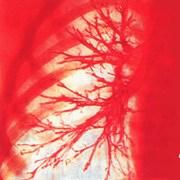 PS Productions/Photospin
PS Productions/Photospin
The presence of mold is much more than just unsightly. Mold in your house, school, place of business, or anywhere you spend any amount of time indoors, can lead to health problems.
Molds can produce a multitude of unpleasantness. They can manufacture allergens, irritants and mycotoxins (substances that may be toxic).
Allergic reactions can result from touching mold or mold spores, or breathing it in.
Inhaling mold cells that are airborne, most commonly spores, is something we all do, both indoors and outdoors, more than you'd like to think.
For most people, this doesn't damage their health. But especially among people with asthma or allergies, they can pose a health risk.
Substances generated by molds can have the same effect as allergens on people sensitive to these allergy-causing substances. Most commonly, both mold spores and growing mold causes allergic reactions, either right away or after some time.
If you have a mold allergy, you may find yourself coughing, sneezing and wheezing. Your nose may run and your eyes may become red, and your skin may develop a rash or other irritation.
There are many possible allergic responses to mold. These can be symptoms similar to those of hay fever, including red eyes, runny nose, skin rash or dermatitis, and sneezing.
Eyes, nose, throat, lungs and skin can be irritated even among those who are not allergic to mold.
According to Medicinenet.com, the Institute of Medicine found in 2004 that being exposed to mold indoors was linked with coughs, wheezing and upper respiratory tract symptoms in people who were generally in good health.
A link was also seen between mold and hypersensitivity pneumonitis, which is similar to pneumonia.
An allergic reaction can occur when the immune system reacts to mold cells that have been breathed into the respiratory tract. The immune system's goal is to attack the mold in the same way it would go after a virus.
The Department of Health and Human Services said that about 10 percent of Americans have an overreaction of their immune systems that can lead to irritated throats and noses, like allergic rhinitis or hay fever.
Less common are the development of breathing difficulties and fever. Live mold of some species, when introduced to lung tissue or tissues of the respiratory tract of people with extremely compromised immune systems, can result in serious respiratory infections.
Asthma attacks can be brought on by asthmatics who also have mold allergy. Among those with asthma, over 50 percent have respiratory allergies. Some of these are mold allergies which can trigger asthma in those asthmatics who are sensitive to it.
Mycotoxins in mold cells can cause poisoning in high doses. While it's not certain that this situation can be brought about by indoor mold, such a circumstance is one to be avoided.
Sources:
Where can mold be found in homes?. Medicinenet.com. Retrieved August 27, 2012.
http://www.medicinenet.com/mold_exposure/page2.htm
A Brief Guide to Mold, Moisture, and Your Home. EPA.gov. Retrieved August 27, 2012.
http://www.epa.gov/mold/moldbasics.html
Mold and Human Health. Epi.publichealth.nc.gov. Retrieved August 27, 2012.
http://epi.publichealth.nc.gov/oii/mold/healtheffects.html
Visit Jody's website and blog at http://www.ncubator.ca and http://ncubator.ca/blogger
Reviewed August 28, 2012
by Michele Blacksberg RN





Add a CommentComments
There are no comments yet. Be the first one and get the conversation started!